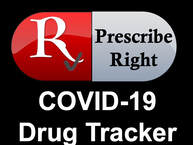|
COVID-19 Vaccine
Moderna announced preliminary data from the NIAID Phase I, COVID-19 vaccine trial, where the lowest dose of mRNA-1273 (25 mcg) produced antibody levels similar to a recovered COVID-19 patient two weeks after the second dose of the vaccine. The 100mcg dose produced higher antibody levels than recovered patients. Patients that received the 250 mcg dose had a higher incidence of transient adverse events, so the Phase II trial will use 50 mcg and 100 mcg doses. The Phase II trial is forecast to begin in May 2020 and a Phase III trial in July 2020. Moderna hopes to file a BLA for mRNA-1273 in early 2021. Commentary on recent COVID-19 news The data currently available for COVID-19 treatments is very preliminary and does not demonstrate nor disprove efficacy. Most data available are from case reports, case series and small trials with methodological problems such as not controlling for confounders (i.e. additional antivirals used, mixed populations, poorly defined outcomes). ClinicalTrials.gov lists over 1,000 trials (1,087 in mid-May). As an example, there are 145 trials of hydroxychloroquine. The sample size in 32 trials is < 100, 12 trials are non-randomized, and 10 trials have no control group. This should be kept in mind as news reports from unreviewed, unedited articles are leaked. These studies may have design flaws, inaccurate or incomplete descriptions of results or missing information. Articles available in the editorial site MedRixiv have increased 400% from the end of 2019 (586 in the last 15-weeks of 2019) compared to early 2020 (2,572 in the first 15-weeks of 2020). Most often the problem in the small studies involves several drugs that may have antiviral properties included in the supportive care of the patient. Therefore, it is unclear which treatment(s) produced an effect. Another problem is when the drug is not given until 1-2 weeks after the patient develops symptoms, which may be too late to have a full effect. So, review the most recent guidelines from the NIH, CDC or a major medical group, optimize supportive care according to their recommendations, and consider an investigative treatment as a shared decision with the patient and in the context of a clinical trial. Two editorials discuss the problems with current research in more detail and included not only drugs and vaccines, but also preventive measures such as masks. BMJ Editorial Nature Editorial Comments are closed.
|
Stay informed, subscribe to the Prescribe Right Pharmaceutical Pipeline Tracker
Archives
January 2023
Categories |
Services |
Company |
Support |
© COPYRIGHT 2015. ALL RIGHTS RESERVED.
|


 RSS Feed
RSS Feed